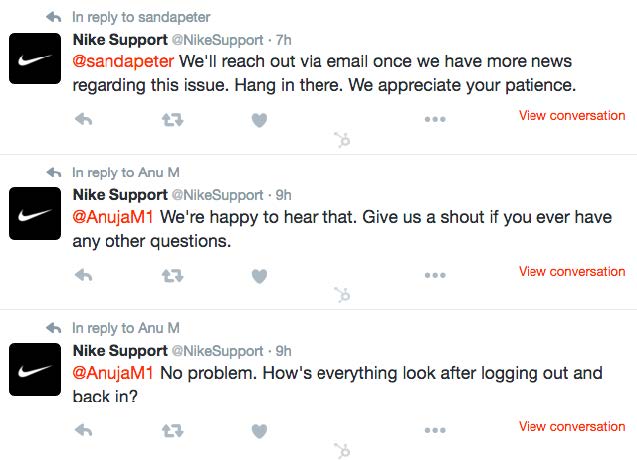Why You Should Focus on Building Your Reviews and Responding
Digital media marketing has revolutionized marketing, even though we have yet to explore its full potential. Although it started emerging as a channel for promotion after the internet came into being, it wasn’t until the launch of Google and social media that its significance became truly apparent.
I am part of the generation who saw this rise from the beginning, so the journey has always been exciting. Digital media marketing has transformed marketing principles entirely, but the fascinating change for me has been to review management.
From WOM to Digital Reviews – How Have Things Changed?

Don’t get me wrong; reviews have always been significant, especially organic reviews. Companies are so intensely affected by organic reviews that the concept is counted as a part of marketing strategy and became famous as Word-of-Mouth Marketing (WOM).
Before the internet and social media swept us away into our current dimension, brands developed creative ways to get customers to promote their products in social and professional circles organically. While advertising tactics are successful to some degree, their effectiveness could not match the power of personal recommendations.
While WOM remains a part of marketing, its digital evolution has made it successful enough for brands to devote a significant portion of their budgets to it.
The Changes
The reason for this change is relatively simple to understand. Customers who previously talked about their meetup experiences now share them on digital media platforms, which are not bound by limitations like regional distances, time differences, and language constraints (due to auto-translations).
Hence, digital reviews have exponentially higher reach than traditional WOM and have nearly the same or higher effectiveness, depending on their strategic deployment.
Likely Sources for Online Reviews

Digital media is a vast space dominated by several platforms that have significant value for review management. Therefore, when I mention the benefits, statistics, or potential strategies, the following are the core sources I will be considering:
- Company website
- Google Reviews
- Online Business Directories – Yelp, Foursquare, YellowPages, etc.
- Social Media – Facebook, YouTube, Instagram, Twitter, etc.
- Digital forums
- Digital marketplace/E-commerce platforms
These are the core digital sources that will play an active role in shaping your online review strategy.
Online Reviews’ Statistics

Before jumping to the benefits, I want to present a few statistics to establish the significance of online reviews.
Sources: Invesp, Trustpilot, Oberlo, Qualtrics
- 90% of customers visit a business after reading online reviews about them.
- Customers spend up to 31% more on businesses with excellent reviews.
- 72% of customers interact with businesses after reading a positive review.
- 62% of customers claim they do not purchase from brands that censor reviews.
- 59% of customers rely on Google for reading online reviews.
- 81% of customers use Google to research a local business, followed by 59% who look at Yelp.
- Yelp receives 26,380 new reviews for businesses per minute.
- 97% of customers who read online reviews from customers also read responses from businesses.
- 35% of customers are motivated to leave online reviews to help others know about their customer experience, while 24% leave them to let businesses know about it.
- 77% of customers are willing to post a review about their experience if asked.
The above statistics paint a clear picture of how critical online reviews are for your business, so let’s explore this reality in more depth.
Benefits of Building Your Reviews

Now that we have statistical proof that online reviews make a difference, we are in the perfect position to explore the benefits in more detail.
1. Free Advertisement (Somewhat)
Organic reviews are essentially free marketing unless you consider influencer marketing, which requires an extensive budget. Although review management strategies now encourage creating reward systems to push for more organic reviews, the cost is nothing compared to the profitability reviews generate.
The above statistics mentioned that 72% of people interact/purchase from a business after reading an online review. The average conversion rate for Google ads is 4.4%, and the average CPA (Cost per Acquisition) for search for all industries is $48.96.
Hence, strengthening the review management strategy is profitable, which delivers results at a fraction of the cost.
2. Improvement in Revenue and Conversion
As mentioned above, higher reviews also improve conversion rates for the business, which is enough reason to focus on building them. Reviews bring in new customers, and they also prompt customers to spend more on each purchase, which improves Revenue per Order (RPO).
Of course, the condition is that the reviews need to be overwhelmingly positive, and the business needs to have an excellent rating.
3. Customer Engagement
As per research by Gallup, engaged customers represent a 23% share of wallet and profitability for a brand, which is why it is a critical consideration for overall strategy. Review building allows brands to engage with customers through interactions, which will eventually positively impact the overall brand equity.
4. Higher Business Credibility
Organic reviews, like WOM marketing, lend credibility to the business. 90% of people look for online reviews before visiting a business because they want to gauge how trustworthy the business’s claims are.
I will advise that you refrain from mixing in paid reviews as much as possible. Customers can often differentiate between organic and paid reviews, and the latter creates a negative association rather than the positive one.
5. Boosted SEO Rankings
The higher your positive reviews, the better your SEO ranking will be. A Higher SEO ranking increases the chance for your business to appear among the first organic search option on browsers, which will improve your business’s visibility.
SEO ranking is one of the most significant parts of digital media marketing, and brands try everything they can to increase the points. Hence, improving ranking through positive reviews is also a cost-effective way of improving competitiveness and overall performance.
Benefits of Responding to Reviews

Review Management involves building reviews and responding to reviews because both have an equally significant impact. Following are the key benefits of responding to the reviews customers share about their experience on your website, E-commerce websites, marketplaces, etc.
1. Local SEO Ranking Improvement
It’s not just reviews that improve your local SEO rankings. Responding appropriately to reviews will also help you increase SEO points, pushing your ranking up towards the top. A key reason is that review responses establish a communication cycle that other customers value and respond positively towards.
2. Local SEO Ranking Improvement
45% of customers reveal that they are more likely to visit a business that responds to negative reviews. That is not to say all responses will be successful.
Your review response can turn around a customer’s negative sentiment and convert that incident into a positive experience instead. This phenomenon is common on websites like Amazon and Yelp, where businesses go to extra lengths to convert a negative experience.
You can check out some examples on the following link of how business owners or managers handled negative reviews on Yelp:
https://academy.getjobber.com/resources/articles/good-responses-negative-yelp-reviews/
3. Promotes Relationship Building
4. Improves Business Ratings
5. Improves Brand Image

Overall, both statistics and examples shared above clearly show the significance of building reviews and responses through a well-planned review management strategy. It is also why a considerable part of SuperCat 360 is focused on reputation management because I know these little steps can make a huge difference.
Basics of Review Management Strategy

The entire discussion has so far been focused on proving how important it is to get more customers to review the business and respond to these reviews. However, doing so requires a concrete review management action plan.
We have already given several hints about the factors that need to be a part of your review management strategy, so let’s consider them objectively.
1. Know Where Your Audience is
Google is the primary channel customers focus on for checking out business reviews, but this statistic does not apply to all businesses. Some businesses receive more reviews on social media platforms like Facebook, Instagram, and YouTube than on Google.
Therefore, it is crucial to determine your target customers’ habits to know which channels you need to keep at the center of your review management strategy.
2. Prioritize Review Networks to Focus On
You will need to establish your presence on every digital media platform your target customers are active on. However, some of these platforms will receive more reviews than others, and you will need this insight when developing your strategy using limited resources.
Always prioritize platforms and networks where customers share reviews for review management strategy instead of dividing all equally. Google, Yelp, TripAdvisor, and Facebook are popular for reviews, so pay special attention to review building and responses on these channels.
3. Establish SOPs for Handling Positive and Negative Reviews
Standardized responses are a huge no, so stay away from them as much as possible. However, create a set of internal templates for positive and negative responses so the people managing them have a base idea about the tone, vibe, and energy their response needs to exude.
Of course, the SOPs for positive and negative reviews should be different because the former can move directly to promotion, while the latter needs damage control. However, as long as your SOPs are comprehensive, you will get the desired results.
4. Create Visibility for Reviews
Since customers give importance to reviews, you need to find ways to make them as visible as possible. Some of the businesses on Instagram use the highlights feature to post reviews shared on multiple channels for their Instagram audience to see. It is simple and effective and something that can be a fundamental part of your overall strategy.
Another way you can increase visibility is by embedding your Google, Facebook, and Yelp reviews on your website. We have access to website development tools that help us incorporate this feature into the website we develop to help you add visibility easily.
5. Develop a Reward System
Finally, you need to develop an attractive reward system that motivates people to share reviews about their experiences more often. You will have various options when deciding which action to reward.
For example, you can offer rewards for people who share detailed and constructive reviews of their experiences, or you can choose to reward someone who shares their review within a specified time after receiving a product or service.
The choice will depend on the nature of your business and the type of customers you are targeting, so you will need to consider these factors before deciding.
Final Thoughts
In short, review management is integral to business growth and success; therefore, you must do everything you can to increase reviews and improve the quality of review responses.
I hope you found this blog information, enjoyed reading it, and are ready to implement some of the wisdom shared above.
If you are looking for a reliable partner for digital media marketing, please don’t hesitate to contact our team. We look forward to hearing from you.
